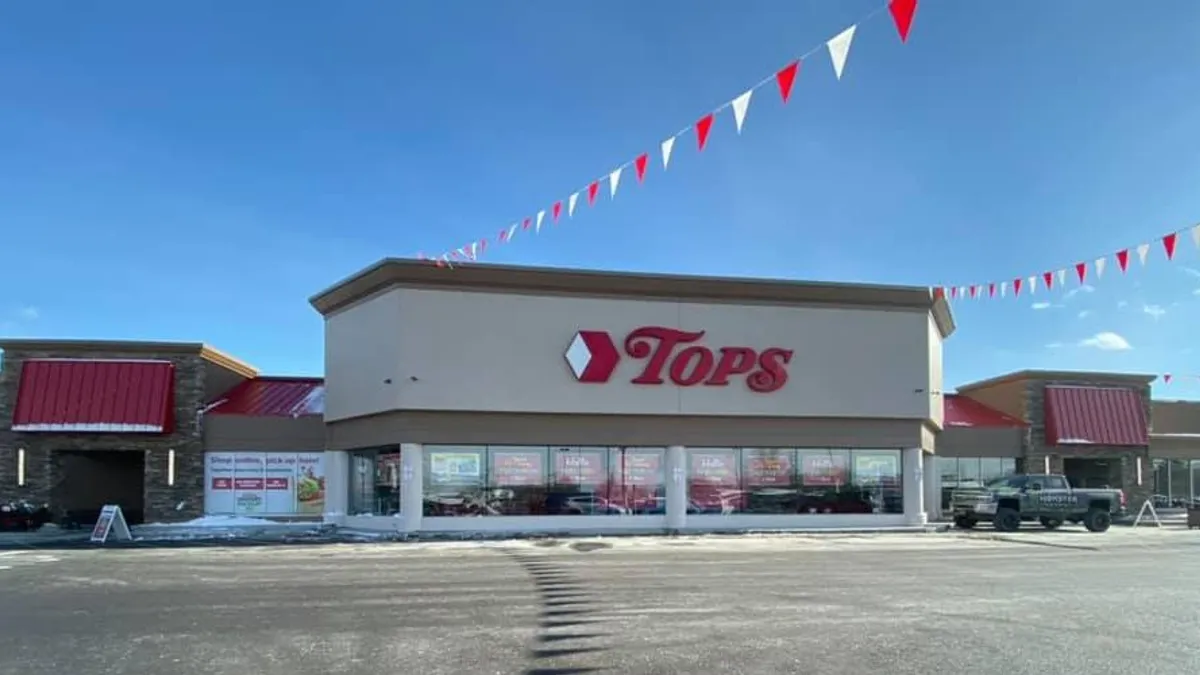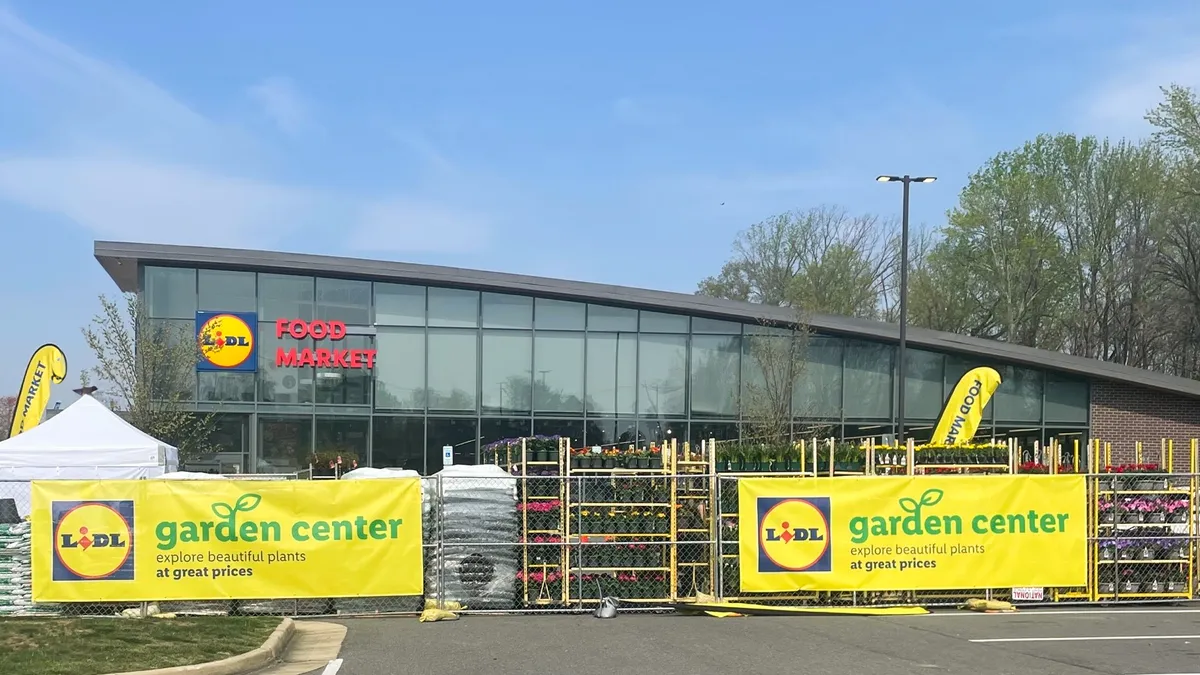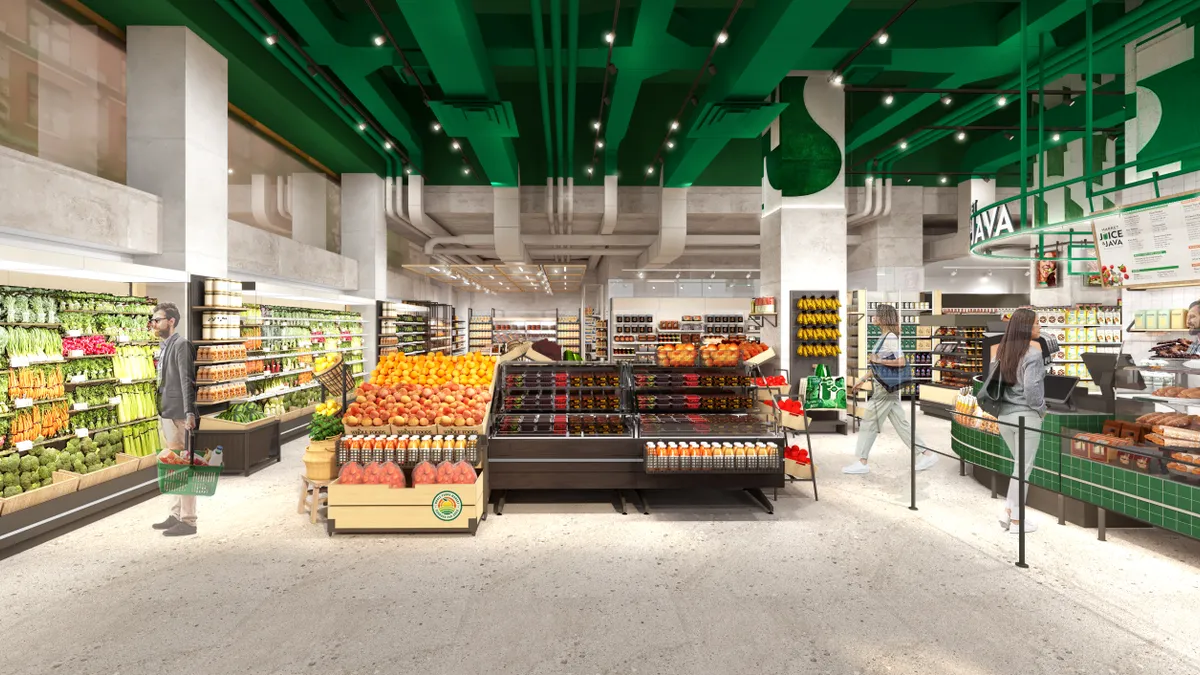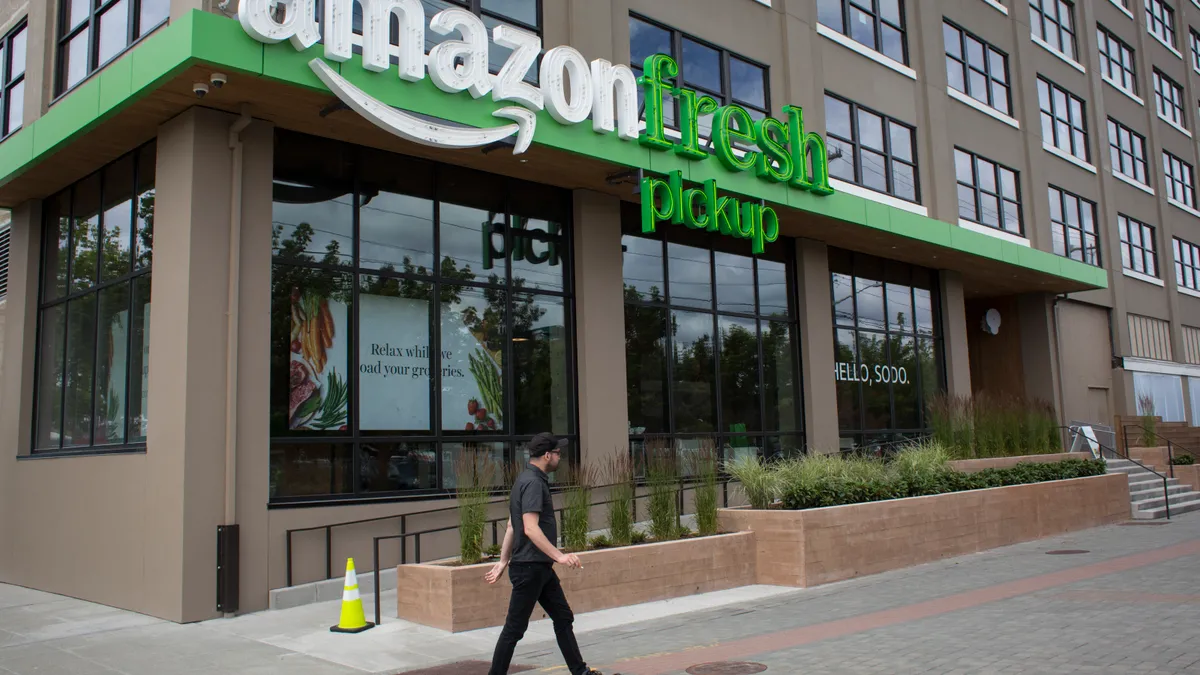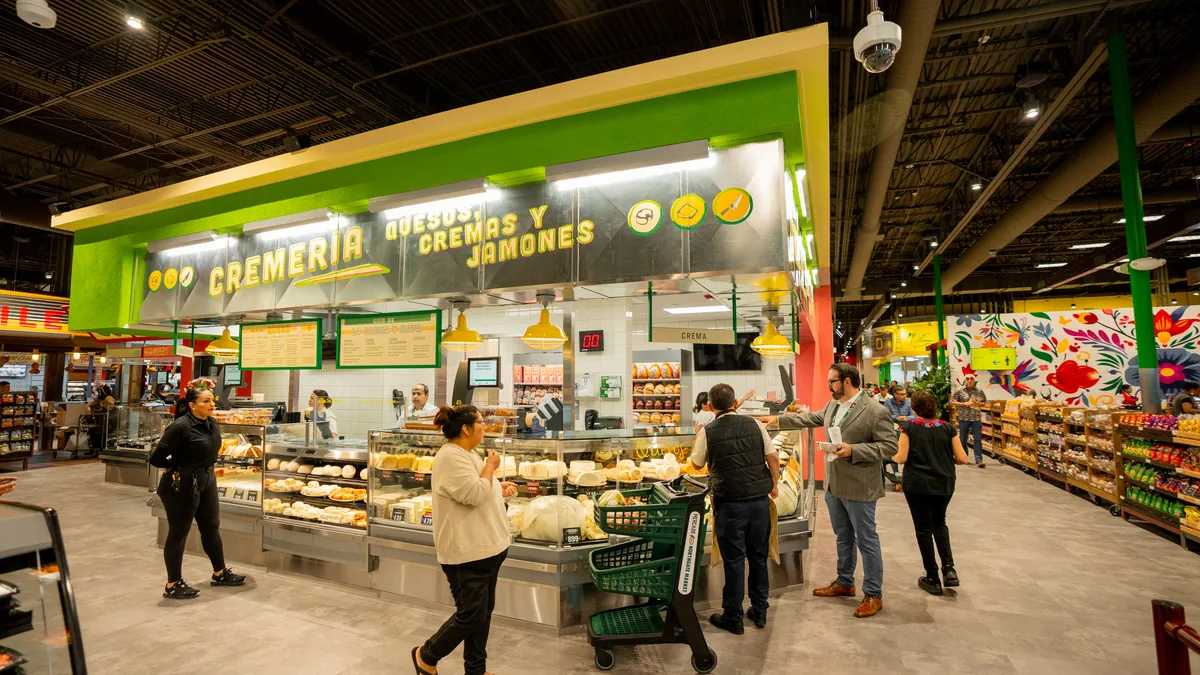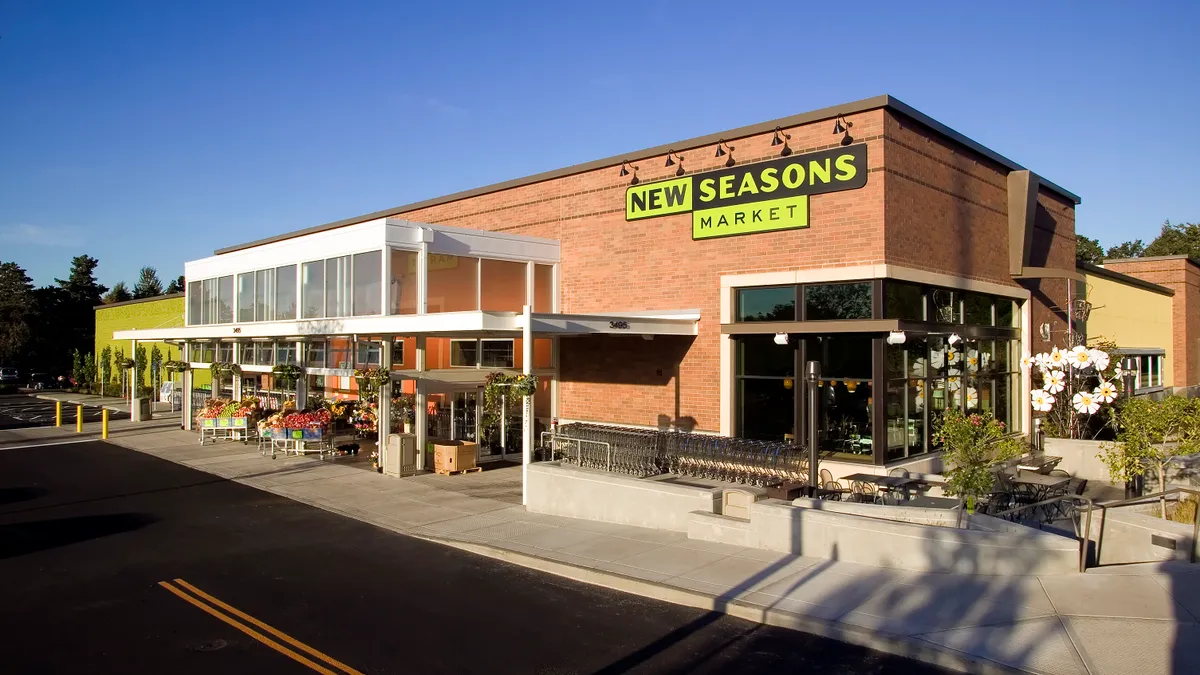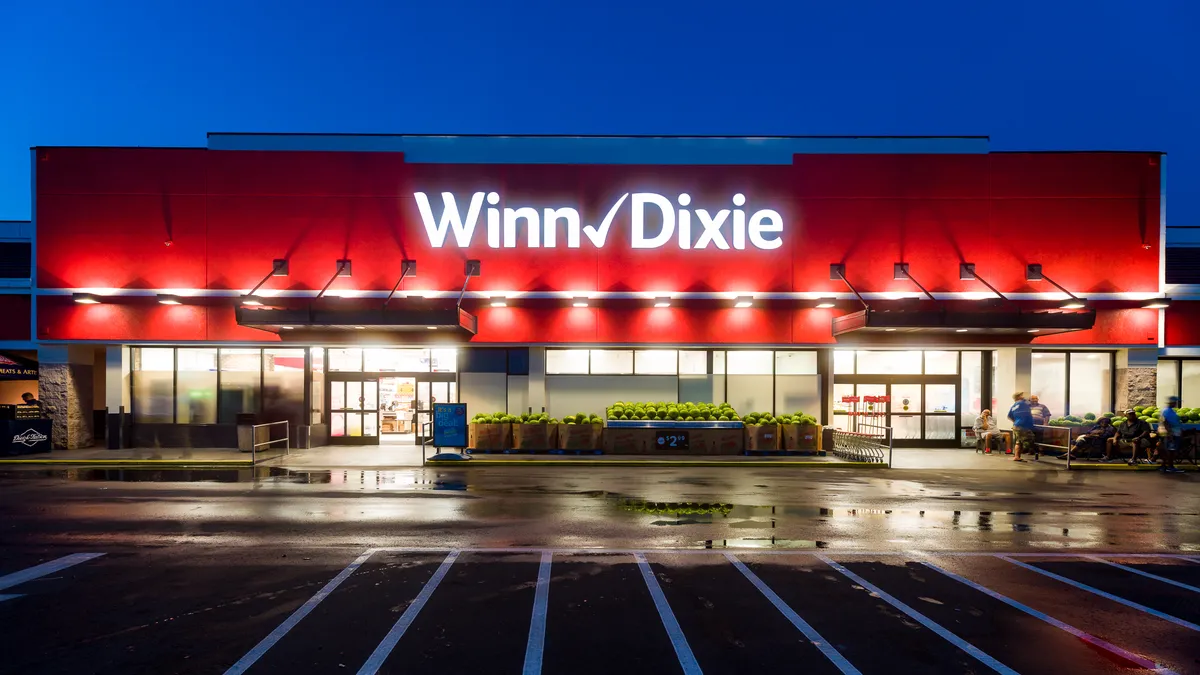NEW YORK — At a packed session at the Summer Fancy Food Show featuring specialty food buyers from retail formats large and small, moderator Phil Lempert wasted no time getting to the question that’s on everyone’s minds these days: How has Amazon changed your business?
For Emilio Mignucci, a third-generation owner of Di Bruno Bros., a specialty retailer in Philadelphia with five locations and an online business, the disruptive e-tailer has changed shopper expectations.
“The world is just getting faster and faster. Our customers want to be serviced instantaneously,” he said.
Di Bruno Bros. has built its reputation on customer service and can handle time-pressed shoppers in its stores, but online is another matter, Mignucci said. The need for speed and the high cost of shipping has prompted Di Bruno Bros. to re-think its e-commerce strategy and consider which products make financial sense to sell on line.
“Managing our freight and how we get product to people are our toughest part,” he said.
Panelists agreed that household items from center store like paper goods and cleaning supplies are increasingly the province of Amazon and its large-scale competitors. The way to stay in business, they said, is to focus on customer service, the delight of discovery, education, local products, meal solutions and everything fresh.
Maren Trocki, director of grocery and dairy at The Fresh Market, based in Greensboro, North Carolina, said Amazon is forcing the 176-unit chain to be more creative.
“We’re going to be really unique and really different and have items people are really going to want to taste and smell and know how to use,” she said.
'We have to be nimble'
Roche Brothers Marketplace, based in Wellesley, Massachusetts, is holding its own so far against the Amazon/Whole Foods onslaught, said Robin McNamara, the chain's director of specialty foods. She has worked at the retailer for 42 years. Roche Bros., she noted, is very focused on boosting sales in specialty, natural and non-GMO products — “all the good things people really want,” she noted.
“We are also heavily vested into local,” she said. As Whole Foods appears to pull back from its local product sourcing programs, Roche Bros. is stepping it up, McNamara said. “We have to be nimble to do battle with them.”
“The world is just getting faster and faster. Our customers want to be serviced instantaneously.”

Emilio Mignucci
Owner, Di Bruno Bros.
For Grocery Outlet, which bills itself as an extreme-value grocery retailer, the business model is all about drawing customers into its nearly 300 brick-and-mortar stores for the thrill of finding unique products at bargain prices, said Layla Kasha, vice president of marketing for the fast-growing company.
“When you really want an experience and you’re planning your week or a special party, you want to go through and taste things and see things,” Kasha said. Nevertheless, speed is also of the essence for Grocery Outlet. “We’ve gone from everyday low price to every-second low price,” she said.
A fragmenting industry
Amazon is not the only seller keeping specialty food merchants up at night. Although sales of specialty foods continue to climb at a faster pace than conventional options, specialty retailers say they've never seen so much competition. Where specialty food used to be offered only at the quaint local gourmet shop, now it can be found across all channels, including big box retailers, discounters, convenience stores, fast-casual restaurant chains and universities.
“We’re no longer just for gourmet specialty retailers,” said Phil Kafarakis, president of the Specialty Food Association. The association is the presenter and owner of the Summer Fancy Food Show, which took place June 30 through July 2 at the Javits Center in New York.
Increased demand from food-savvy shoppers, especially millennials, has boosted sales of specialty food. According to the latest research from the Specialty Food Association prepared by Mintel and SPINS/IRI, specialty foods sales grew nine times as much as all food over the past two years, and now represents 15.8% of the total U.S. retail food market.
Specialty food sales grew 12.9% versus 1.4% for all food from 2015 to 2017, according to the research. That number is expected to climb to 19% by 2022.
“People used to just go buy things as cheap as they could,” said Kasha of Grocery Outlet. Now, the consumer is “all about natural, organic, specialty and health.”
'People have to be able to eat, shop and learn'
Lempert, the panel moderator, has tracked grocery and retail trends for more than two decades. He declared that the 45,000-square-foot conventional supermarket is a dinosaur, and the panelists agreed. To survive in the age of Amazon, they said, retailers need to be more focused on fresh foods, unique products and on the in-store customer experience.
Mignucci said Di Bruno Bros.’ latest store is 12,000 square feet and has aisles that are narrow on purpose to accentuate the feeling of a neighborhood market where shoppers can rub elbows with one another.
“We want to keep delivering the experience that my grandfather Danny gave to people. People have to be able to eat, shop and learn,” he said.
“Give me three or four curated oils that are really good. Get back Bob the Butcher.”

Phil Lempert
Author and analyst
Di Bruno Bros. keeps the human touch by having a butcher in its stores.
“We break down primal cuts to make it more attractive and show where it is coming from. Our butcher is a creative cook and he teaches customers what to do. Same with our fish monger,” he said.
“My guys are setting the produce department. They are trimming and cutting and making it look beautiful. The customers see that. That’s the only way we can entice people to keep coming. That is our ammunition.”
At The Fresh Market, Trocki believes a key to staying relevant is offering meal solutions and a “smaller, curated mix so it is easier to shop.”
To stand out from Amazon, Lempert said he sees grocers selling a tight assortment of specialty items and adding more customer service features.
“Home ordering can take care of brands. The rest of the store becomes like a Fresh Market, a Roche Bros.,” he said. Rather than offer a hundred bottles of olive oil, “give me three or four curated oils that are really good. Get back Bob the Butcher.”
Great customer service and the human touch are clear winners for specialty grocers. But finding young people who want a career in the grocery business is increasingly tough, noted McNamara of Roche Bros.
“A lot of people don’t want to work in supermarkets. Without those people we’re in trouble,” she said. “We’re never going to be so automated that we will have order kiosks in our deli.”
But even Lempert is captivated by the speed and convenience of Amazon. He said he now gets frustrated if the pistachios he orders online fail to arrive within two hours. And he pointed to Walmart in China, which announced in April that it had opened a small-format store in Shenzhen with fresh products that can be ordered online and delivered within 29 minutes.
“We’ve had these experiences that have raised our expectations,” he said.








